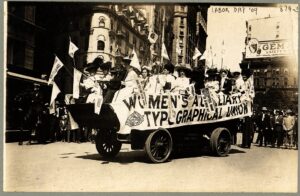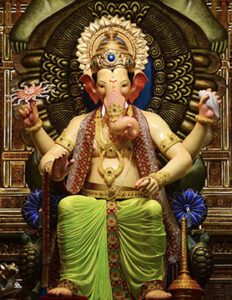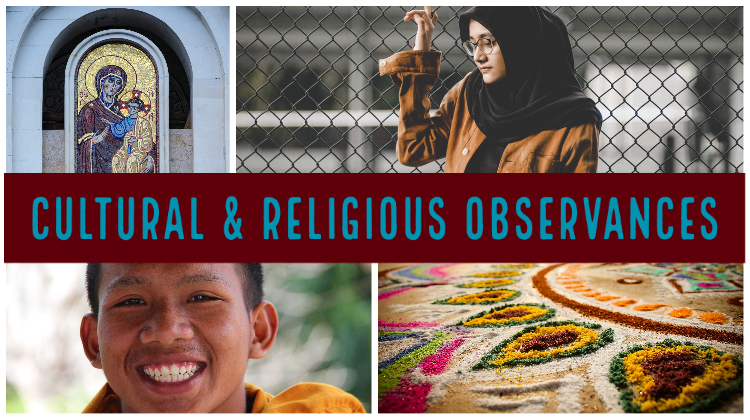Labor Day

Culture/religion: National observance
Date: September 6
Recognized annually on the first Monday in September, Labor Day was created by the labor movement to honor the social and economic achievements of American workers.
The first governmental recognition came through municipal ordinances passed in 1885 and 1886, followed by a movement to secure state legislation. The first state bill was in New York, but the first state to pass the law was Oregon on February 21, 1887.
The first Labor Day holiday was celebrated on Tuesday, September 5, 1882 in New York City. On June 28, 1894, President Grover Cleveland signed a law making the first Monday in September of each year a national holiday.
Sources:
Rosh Hashanah

Culture/religion: Judaism
Date: September 7-8
Rosh Hashanah (“Head of the Year”) is the birthday of the universe and the Jewish New Year. It is both a day of prayer and a day of joy when God is proclaimed King of the Universe.
The central observance of Rosh Hashanah is the sounding of the shofar (the ram’s horn) on both days of the holiday and takes place in the synagogue. The blowing of the shofar represents the trumpet at a king’s coronation.
Much of the day is spent in synagogue praying for God to grant all of His creations a sweet new year. Women and girls light candles on each evening of Rosh Hashanah and recite blessings, and festive meals are prepared and eat each night and day.
Rosh Hashanah is a Jewish holy day and begins at sundown on September 6. Work is not permitted September 6-8.
Pronunciation: ROHSH hah SHAH-nuh / RUSH-uh SHAH-nuh
Greetings:
- Before Rosh Hashanah
- For males: Leshanah tovah tikatev vetichatem; (May you be written and sealed for a good year)
- For females: Leshanah tovah tikatevee vetichatemee (May you be written and sealed for a good year)
- At noon on Rosh Hashanah until Yom Kippur
- Gemar chatimah tovah (A good final sealing)
Sources:
What is Rosh Hashanah?, Chabad.org
Glossary of Jewish Terminology, Judaism 101, jewfaq.org
Ganesh Chaturthi

Culture/religion: Hindu
Date: September 10
Ganesh Chaturthi is a ten-day Hindu festival celebrating the anniversary of the birth of the elephant-headed god Ganesha. Ganesha is known as the god of wealth, sciences, knowledge, wisdom and prosperity, and many Hindus seek his blessing before beginning any important work.
Four main rituals are performed during the 10-day festival: Pranapratishhtha, Shhodashopachara, – offering prayer to Ganesha’s idol in 16 different ways; Uttarpuja – bidding farewell to Ganesha with deep respect; and Ganpati Visarjan – a ceremony where the statue of Ganesha is carried to the sea and placing it in the water. Ganesh idols are decorated with flowers, garlands and lights and placed in homes, temples and other locations.
It is thought those who pray to Ganesha are set free of sins and set on a path of knowledge and wisdom.
Sources:
Ganesh Chaturthi, Wikipedia
Ganesh Chaturthi 2019: History, Importance and Rituals of Vinayaka Chavithi, Times of India

